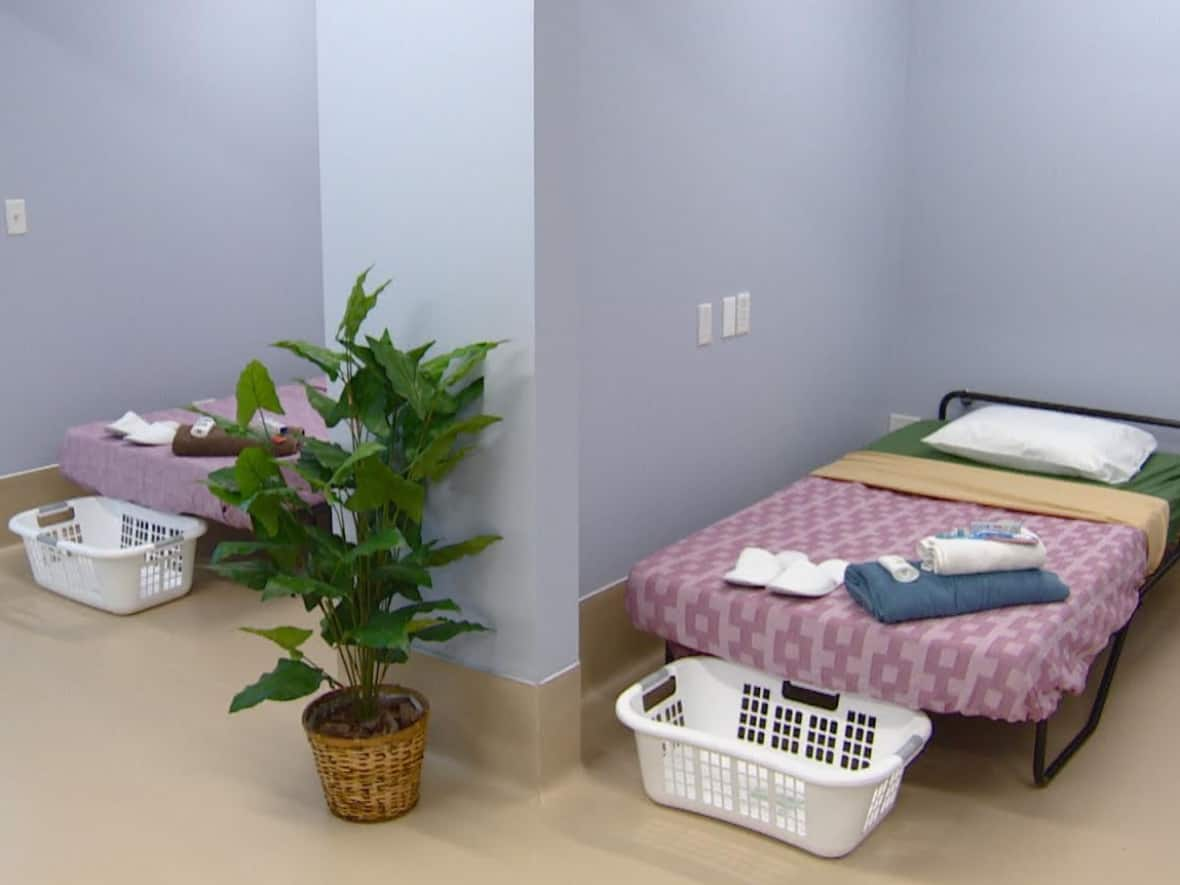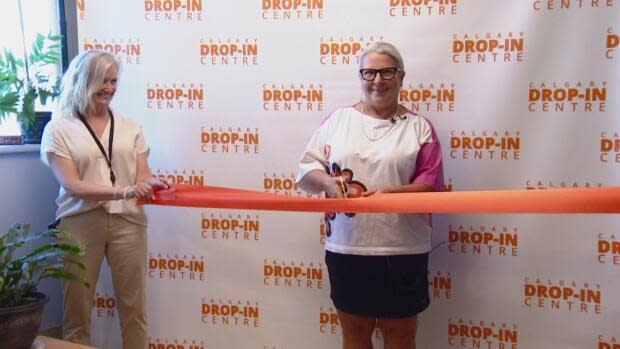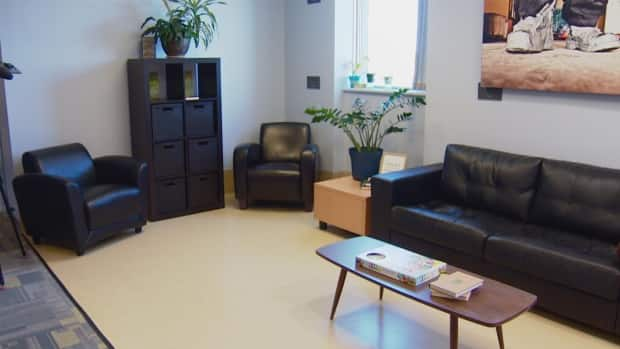Calgary Drop-In Centre adds detox beds focusing on addiction treatment

The Calgary Drop-In Centre is opening up 35 new beds that will focus solely on detox and recovery transition services.
It's a new service for the organization, aiming to help upwards of a thousand people per year. The beds and treatment rooms will be in a closed-off section on the fifth floor of the East Village shelter.
Sandra Clarkson, executive director at the Calgary Drop-In Centre, said at a ribbon cutting ceremony Thursday that there will be 15 medically supported withdrawal or detox beds, and 20 recovery transition beds, which allow people extra support while they're waiting to move on to other treatment.

"We recognize that the rate of and impact of addictions and the opioid or toxic drug crisis was really impacting the most vulnerable people that we serve," she said.
She added that while staff is trained in naloxone administration in the event of an overdose, they're now able to go beyond that service.
"To offer a pathway out of addiction, into recovery and ultimately into housing."
Clarkson said a doctor oversees detox and there is assistance in terms of what withdrawal management looks like based on each individual need.
She said withdrawal management is a five- to a maximum 10-day process, whereas recovery transition can be up to three months depending on individual circumstances.
"Ideally they're either working or waiting on getting into another program that carries them on that journey or transitioning to housing."
Chaz Smith, founder at street outreach group Be the Change YYC, said people must detox before moving into a treatment program, which means these types of beds are desperately needed.

"Most treatment programs require you to be sober for a specific amount of time. And this is because treatment programs are really about treating the underlying traumas, like the reason you're using these substances. But detoxing is more of a medical thing," he said.
"So increasing our supply of these detox beds allows more folks to get into treatment, which I hear consistently every street outreach shift they really do want."
He said detox spaces are a great start in helping people with addiction, but added that more affordable housing is needed.
"How long can you remain in an unhoused state, walking the street in that trauma-induced [state] looking for food, water, shelter, day in, day out before you need something to self-medicate," he said.
"The key thing here, I think, is to offer the help and make sure that we're closing that gap and not repeating the cycle of homelessness. We need to provide more affordable housing."
The program started operating with a reduced number of beds in April and Clarkson said the centre is hoping to open in early July at full capacity.


